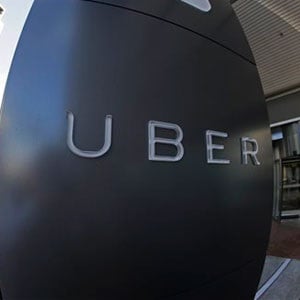
Smartphone-driven taxi service Uber is not going to have an easy time convincing South African legislators to clear the way for its nationwide expansion.
The soon-to-be-revealed new draft amendments to South Africa’s public transport law will accommodate “e-hailing”, but not in the way Uber is hoping for.
The US-based company this week pleaded with MPs to give it a new section in the National Land Transport Act custom-made to accommodate its business model as something legally separate from normal metered taxis.
A rewritten amendment to the act, originally proposed in 2013, is currently awaiting Cabinet approval before making its way to Parliament.
It will introduce “e-hailing” into the regulatory system, but the last public indications were that this would simply involve adding it to the existing regime for metered taxis.
An official in the department of transport, however, this week told City Press that it would be inappropriate to say exactly how e-hailing was regulated in the draft before Cabinet signed off on it.
Uber’s managing director for sub-Saharan Africa, Alon Lits, got a chilly reception from parliamentarians on Tuesday after presenting Uber’s own proposed amendments.
While justifying this request as a way to improve public transport and resolve conflicts between its drivers and older taxi services, Uber’s specific requests also seem designed to protect it from its own drivers.
Uber wants them regulated in a way that ties them to the app and stops them from soliciting business themselves – or accepting cash.
The committee’s chairperson, Dikeledi Magadzi, said Uber’s market was a “premium market” and “not of primary concern to the improvement of the transport options of most South Africans”.
ANC MP Mkiteni Sibande said: “Who’s Uber? Too many people who come here with technology think they can tell us what we must do.”
Khethamabala Sithole, an MP for the IFP, said the amendment could harm the taxi industry.
“It’s not just a matter of amending an act. It is a long process and the changes could have a significant impact on existing metered taxis. It will affect the industry in the long run,” he said.
Lits repeated the standing Uber target of eventually enlisting 15 000 drivers in South Africa and added that it would conceivably target any town with a population over 200 000, whereas it currently only operates in Johannesburg, Cape Town, Durban and Port Elizabeth.
The company is asking that its so-called partner drivers in South Africa be regulated as “transportation network operators (TNOs)”.
The detailed amendment it proposes repeats the company’s mantra that the drivers are the transportation service providers, while Uber is merely a technology service they use. This is key to the company’s ability to avoid being regulated itself.
The TNOs should, however, be exempt from route limitations, says Uber. They should also be free of the sections of the act that aim to limit the number of taxi drivers operating in an area, says Uber.
This mechanism, meant to restrain competition and maintain driver earnings, is anathema to the company.
The operating licences its drivers get should also be national in scope to allow them to move between cities to follow the seasons, according to the submission it had already made to the department of transport and handed to Parliament’s committee on Tuesday.
In addition, the company wants the act amended to specifically protect its model by replicating, in the law itself, the restrictions it forces on its drivers.
These include barring Uber drivers from picking up passengers that did not hail them through the smartphone application.
If Uber drivers were able to do this at will, the company would likely lose a significant portion of the 20% fare cut it takes. Uber, however, portrays this as a peace offering, saying this restriction on TNOs would ensure the old-fashioned taxis retain a “complete monopoly” on the business of picking people up on the street.
It also wants the law to bar drivers licensed as TNOs from accepting any cash payments that circumvent its credit card-based digital system. Again, this seems designed to protect Uber from its drivers’ possible attempts to make more money by cutting out the middleman and doing normal taxi rides in between Uber-arranged ones.
According to the company, the point is to protect the old cash-based industry.
Where the law currently allows for taxi fares to be set beneath a ceiling, Uber is calling for complete freedom to escalate fares in accordance with its model of “surge” pricing at busy times of the day.
It also wants the law to avoid any price floors.




 Publications
Publications
 Partners
Partners








